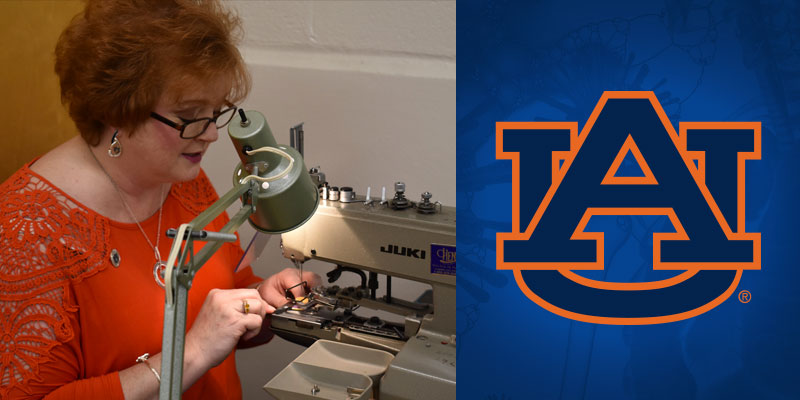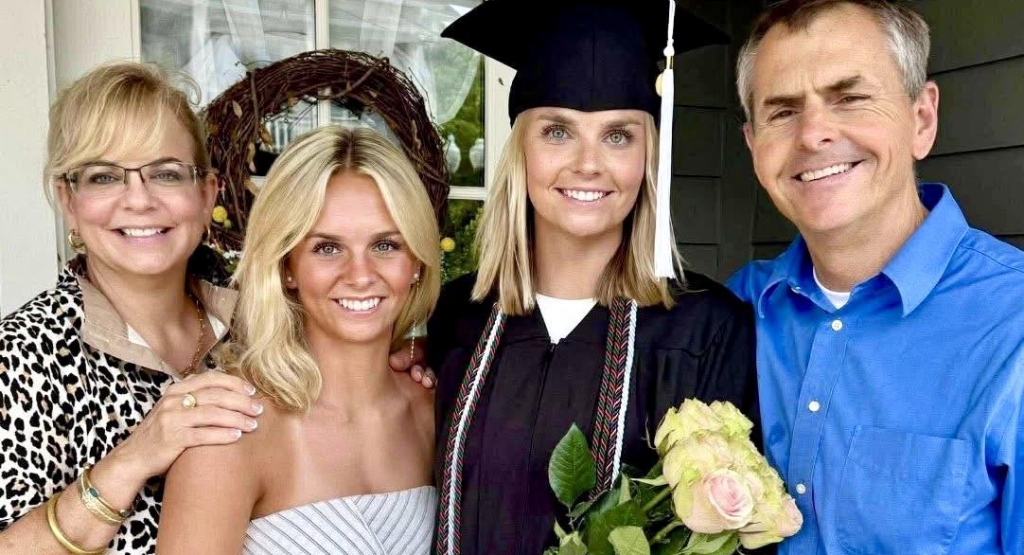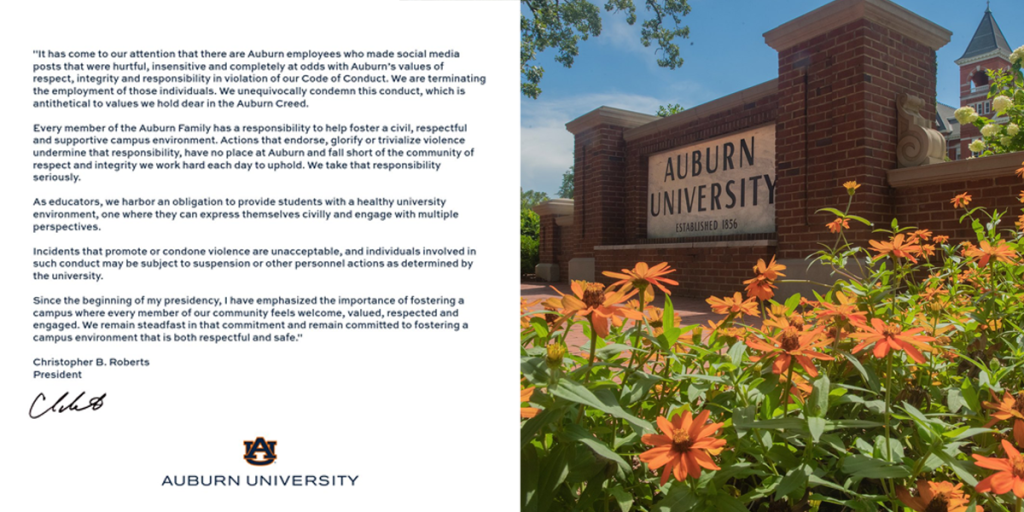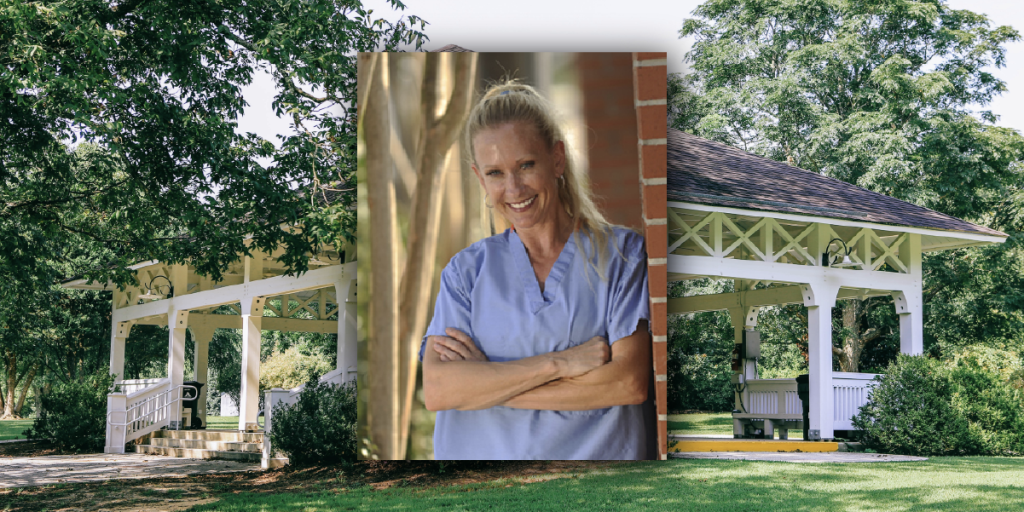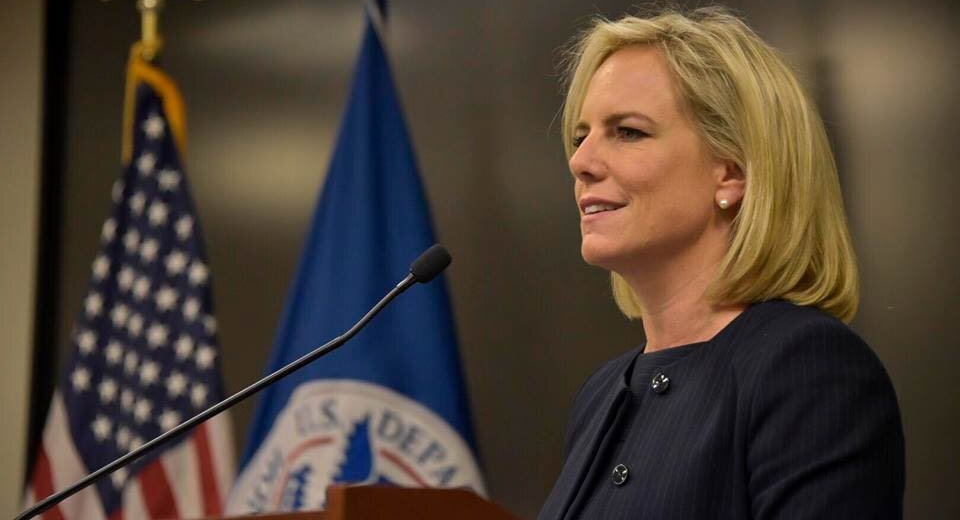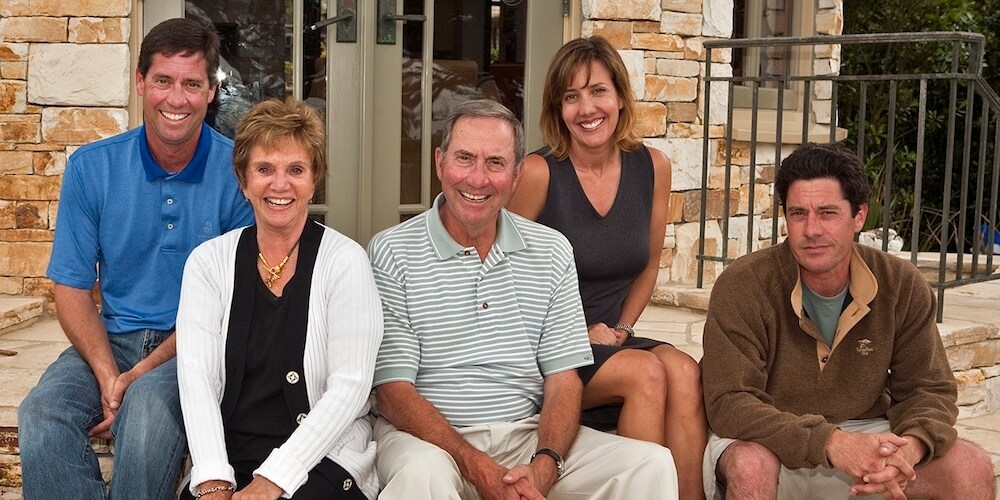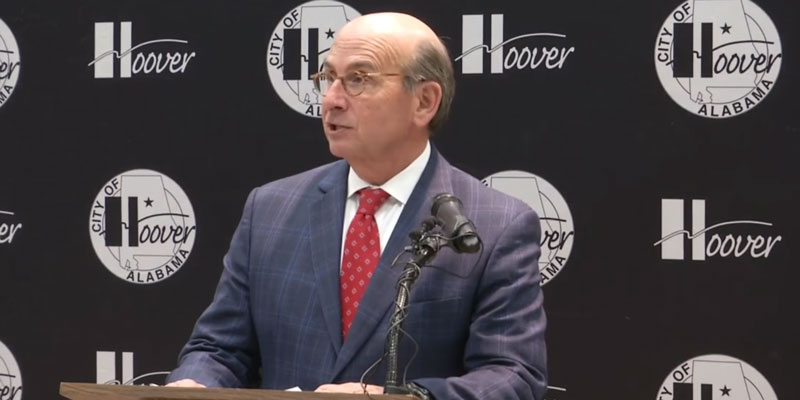AUBURN, Ala.— Under the current world climate, it is everyday people who are doing whatever they can to help those who are fighting the COVID-19 pandemic on the front lines.
Auburn University Associate Professor Karla Teel is just one person, but with the help of her husband, Donnie, she is trying to help health care workers in the region.
Armed with a stock of ribbons and buttons, Teel uses the button stitching machine in the Apparel Production Lab in Spidle Hall to make mask extenders. An extender is simply a piece of ribbon with a button on each end.
Rather than the elastic bands of a face mask wrapping around the ears, which can be hurtful after prolonged usage, the bands reach around the buttons of the extender on the back of the head.
“Even though I’m tired, this is the least I can do for those on the front lines,” said Teel. “I want to do this for everyone who is suffering more than me.”
Teel, a two-time Auburn alumnae and veteran member of the apparel design faculty in the College of Human Sciences, said she wanted to help with making masks like many others on campus, but between online classes and her own health issues, which have put her in a wheelchair, her time and energy are limited.
A two-time breast cancer survivor, Teel was diagnosed in January 2019 with avascular necrosis, or deadening of the bone, in her ankles. She was on sick leave that spring following successful ankle surgery. Teel returned to campus for the fall semester, but ended up needing hip surgery for the same diagnosis in November.
She said she is doing well now, but unfortunately has regressed back into a wheelchair with constant excruciating pain in her right hip.
Fortunately, the button stitching machine can be operated with either foot, so Teel can use her left without causing herself more pain.
The Teels only started their project two weeks ago so the amount of extenders they have made is far from the goal. Karla Teel said she plans to at least have enough to supply those at Russell Medical Center in Alex City, Coosa Valley Medical Center in Sylacauga and East Alabama Medical Center in Opelika.
(Courtesy of Auburn University)




